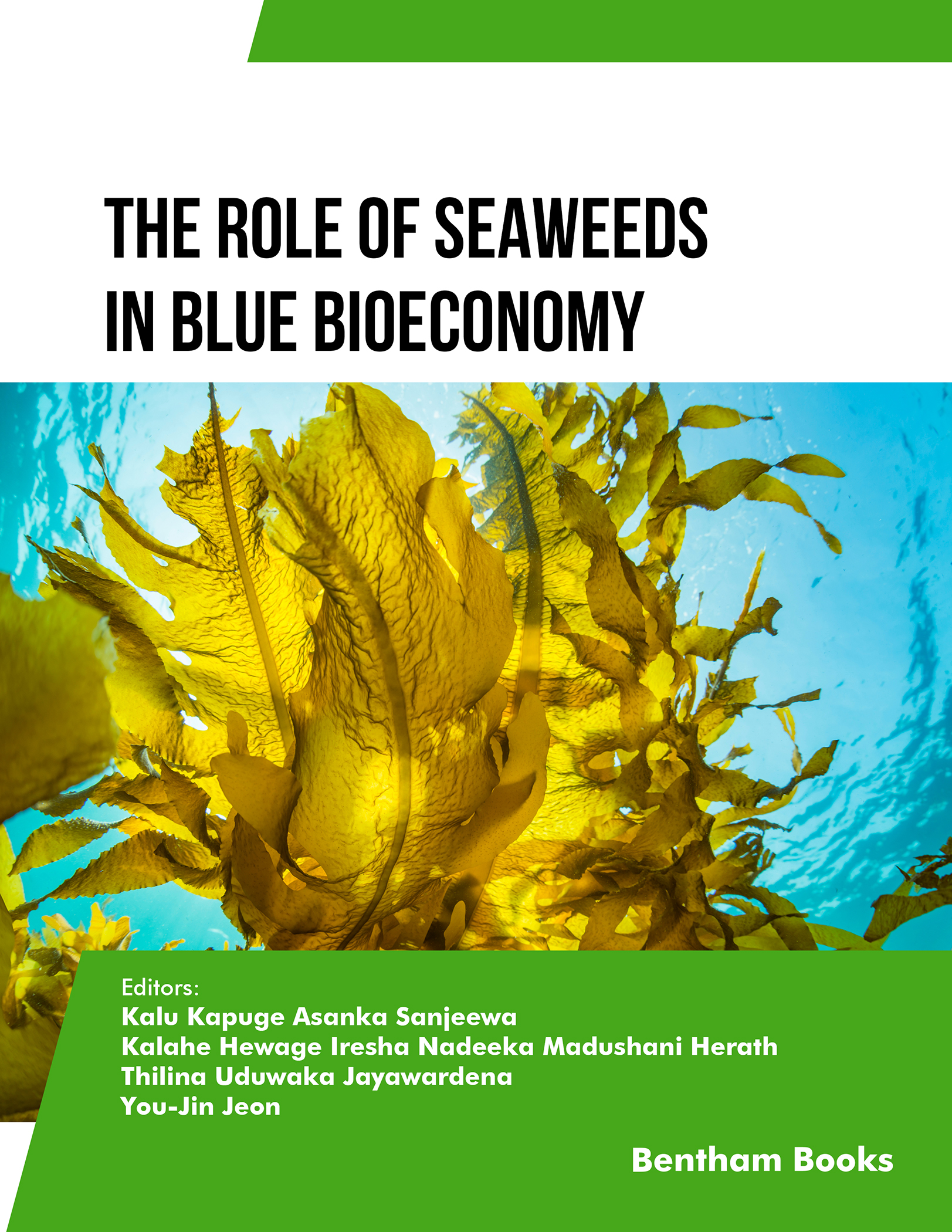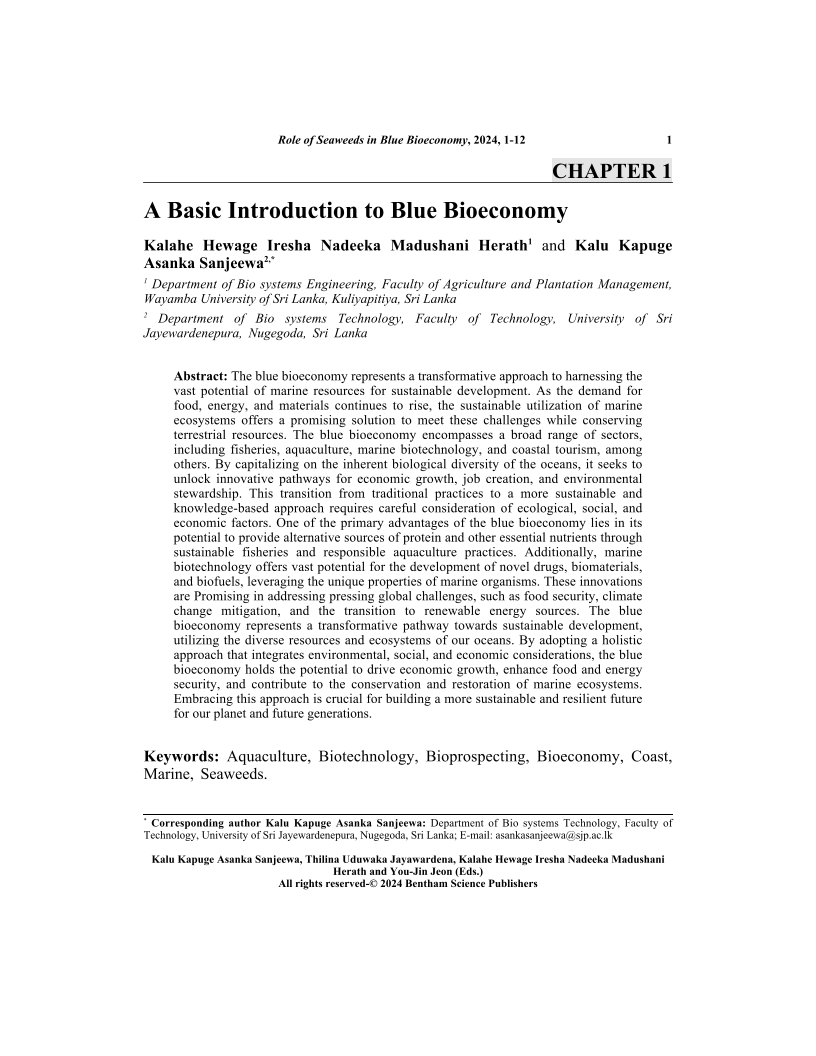A Basic Introduction to Blue Bioeconomy

- Authors: Kalahe Hewage Iresha Nadeeka Madushani Herath1, Kalu Kapuge Asanka Sanjeewa2
-
View Affiliations Hide AffiliationsAffiliations: 1 Department of Bio systems Engineering, Faculty of Agriculture and Plantation Management, Wayamba University of Sri Lanka, Kuliyapitiya, Sri Lanka 2 Department of Bio systems Technology, Faculty of Technology, University of Sri Jayewardenepura, Nugegoda, Sri Lanka
- Source: The Role of Seaweeds in Blue Bioeconomy , pp 1-12
- Publication Date: May 2024
- Language: English
A Basic Introduction to Blue Bioeconomy, Page 1 of 1
< Previous page | Next page > /docserver/preview/fulltext/9789815223644/chapter-1-1.gif
The blue bioeconomy represents a transformative approach to harnessing the vast potential of marine resources for sustainable development. As the demand for food, energy, and materials continues to rise, the sustainable utilization of marine ecosystems offers a promising solution to meet these challenges while conserving terrestrial resources. The blue bioeconomy encompasses a broad range of sectors, including fisheries, aquaculture, marine biotechnology, and coastal tourism, among others. By capitalizing on the inherent biological diversity of the oceans, it seeks to unlock innovative pathways for economic growth, job creation, and environmental stewardship. This transition from traditional practices to a more sustainable and knowledge-based approach requires careful consideration of ecological, social, and economic factors. One of the primary advantages of the blue bioeconomy lies in its potential to provide alternative sources of protein and other essential nutrients through sustainable fisheries and responsible aquaculture practices. Additionally, marine biotechnology offers vast potential for the development of novel drugs, biomaterials, and biofuels, leveraging the unique properties of marine organisms. These innovations are Promising in addressing pressing global challenges, such as food security, climate change mitigation, and the transition to renewable energy sources. The blue bioeconomy represents a transformative pathway towards sustainable development, utilizing the diverse resources and ecosystems of our oceans. By adopting a holistic approach that integrates environmental, social, and economic considerations, the blue bioeconomy holds the potential to drive economic growth, enhance food and energy security, and contribute to the conservation and restoration of marine ecosystems. Embracing this approach is crucial for building a more sustainable and resilient future for our planet and future generations.
-
From This Site
/content/books/9789815223644.chapter-1dcterms_subject,pub_keyword-contentType:Journal105

